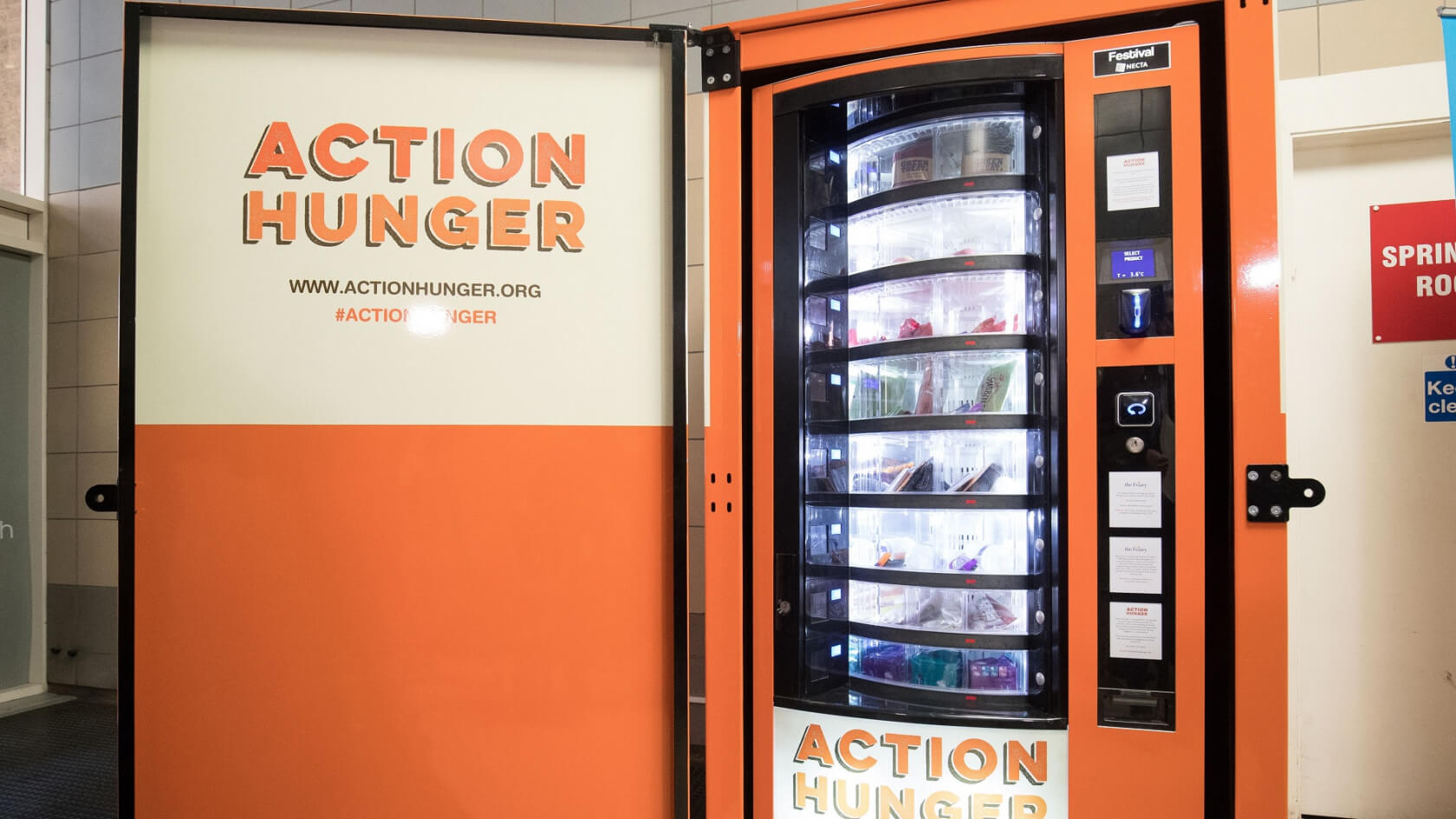It's easy to forget, but technology is often used for good causes and as a way of helping those in need. Over in the UK city of Nottingham, the world's first vending machine for homeless people has just been installed, allowing those sleeping on the streets to stock up on free essentials any time during the day or night.
The machine, which is now available at the Broadmarsh Intu shopping center, dispenses items such as water, fresh fruit, energy bars, sanitary pads, socks, and sandwiches. It even contains antibacterial lotion, toothbrush and toothpaste packs, and books.
The project is the work of Huzaifah Khaled, founder of the Nottingham homeless charity Action Hunger, which restocks and monitors the machine daily. He says most of the food contents come from redistribution organizations that attempt to reduce food waste, while other items are bought using charitable donations.
Vending machine for the homeless, in partnership with @thefriary88 - a day centre for the homeless in Nottingham @_actionhunger pic.twitter.com/ZhCi09CBs8
--- Ken Loach (@KenLoachSixteen) December 19, 2017
To ensure the machine isn't abused and used only by those most in need, up to 100 homeless people will be given traceable key cards handed out by the Friary, a drop-in advice center. Each person can use their card to receive an item from the machine up to three times in one day. They must check in at the Friary once per week for the cards to continue working.
"The measure is designed to prevent singular dependency on our machines - we want our low-cost solution to complement other services that are available, as engagement with professionals and local support services is instrumental to breaking the cycle of homelessness," the charity said.
29-year-old Khaled developed the project while completing his PhD in law at the University of Cambridge, and even managed to convince N&W Global Vending to give him a £10,000 ($13,400) machine for free, reports the Guardian.
Khaled hopes to expand the initiative across the country and into the US. He aims to have 25-30 of them in the UK by the end of 2018, while next year will also see two machines appear in New York, followed by more in Los Angeles, San Francisco, and Seattle. It looks as if the program could be taken up by other countries, too. "I've had emails from people in Greece, Spain, Australia and China, all wanting to know more," said Khaled.
